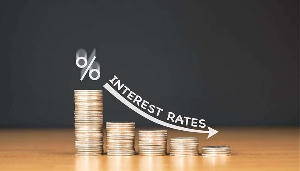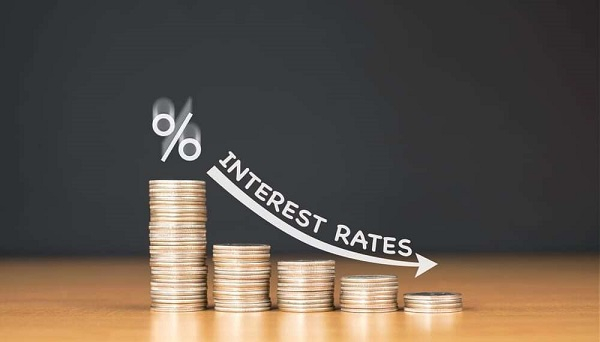 BoG has reduced the monetary policy rate to 21.5%
BoG has reduced the monetary policy rate to 21.5%
The Director of Research at the Bank of Ghana (BoG), Dr Philip Abradu-Otoo, has noted that the Monetary Policy Committee (MPC) takes into account a wide range of factors, including national spending patterns when determining the policy rate.
According to him, decision-making process is far more complex than many people assume.
On September 16, 2025, the Bank of Ghana revised its benchmark policy rate downward by 350 basis points to 21.5%.
Speaking in an interview with JoyNews, Dr Abradu-Otoo said; “The things that go into deciding where to set the key policy rate of a central bank involve many factors.”
BoG cuts monetary policy rate from 25% to 21.5%
“The committee, in arriving at this decision, discusses issues about the real sector of the economy. So, when we talk about the real sector of the economy, we are talking about how businesses are faring.”
He pointed out that the committee measures the impact of fiscal policies on real economic activity and behaviour.
“We’re talking about how consumers are also faring, and whether consumers are feeling the pinch of economic adjustment that is taking place, whether spending in the economy is at a level that is consistent with what the fiscal authorities, for instance, might expect, because the more we spend, the more the fiscal authorities are also able to extract revenues for development purposes,” he said.
He further said the performance of the real sector and the direction of prices are considered in setting the policy rate.
“So when we talk about the real sector of the economy, it’s about what you and I are doing in the economy. It’s about what businesses are doing in the economy. And we try to gauge the tempo of all these activities in the economy, imports, exports, all these things fit under the real sector of the economy,” Dr Abradu-Otoo said
“We try to gauge activities in the real sector of the economy. We try to look at what is going on with respect to prices, inflation, you call it inflation. And then we try to even look at what the forecast of all these indicators looks like, especially for inflation, and are we getting close to our target?” he said.
Additionally, he underscored that the banking sector is a key determinant in making policy decisions.
He said, “And having done this, we also look at even the banking sector, are they positioned in a way to help support growth in the economy, because the main job of banks in the country is to support growth. Okay, so are banks well-positioned to deliver growth in the economy?”
Dr Abradu-Otoo concluded by adding that policymakers also consider risks before making the final policy decision.
“And having done that, we then look at the risks surrounding all these things, and then we try to put all these things together in a framework to decide as to whether going forward, we should be confident about ourselves, and whether going forward we think that the risks are very minimal, and whether we can then reposition our key policy rate to deliver continued growth sustainably. I think the keyword is sustainable manner.”
SSD/SA
Watch the latest edition of BizTech below:

